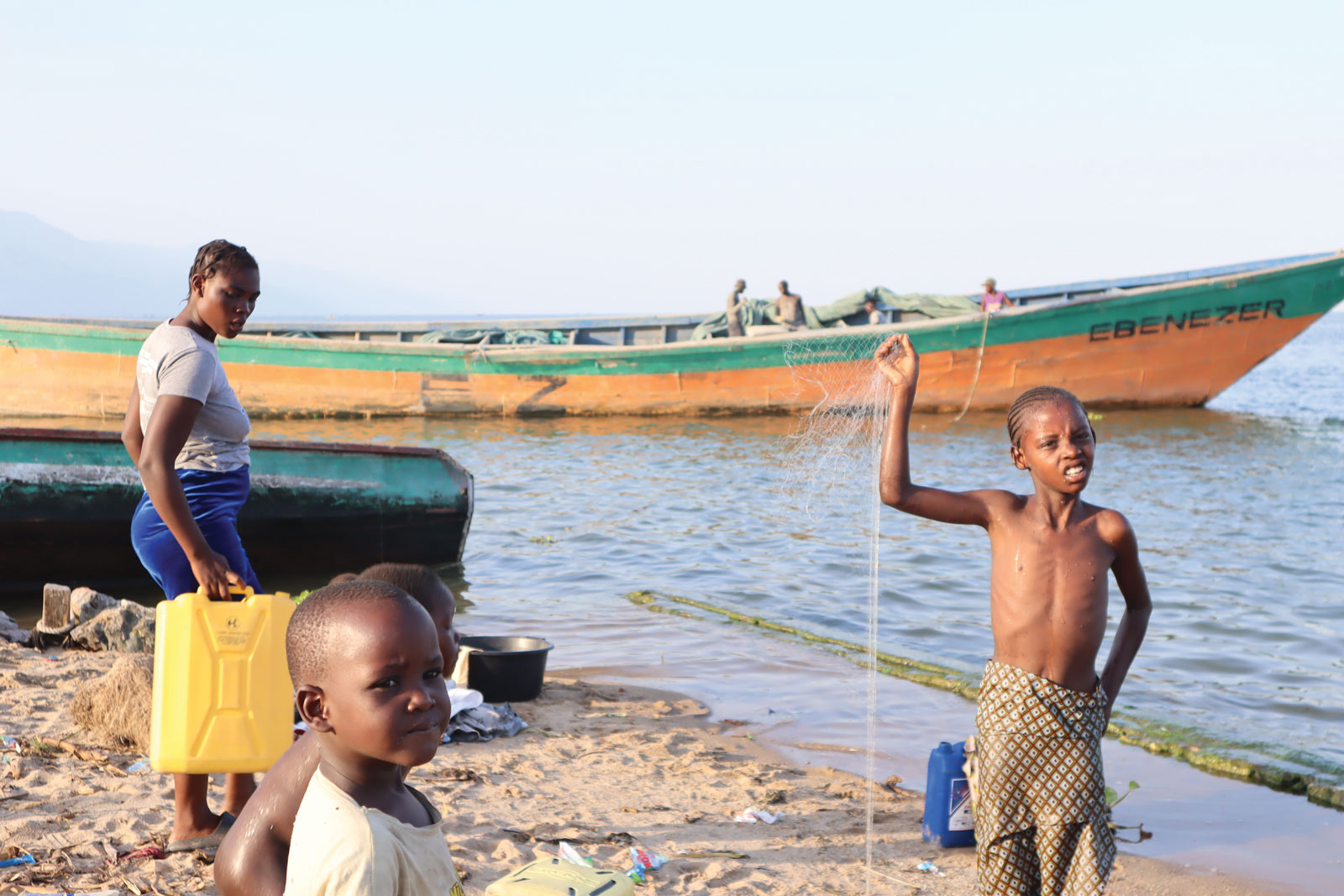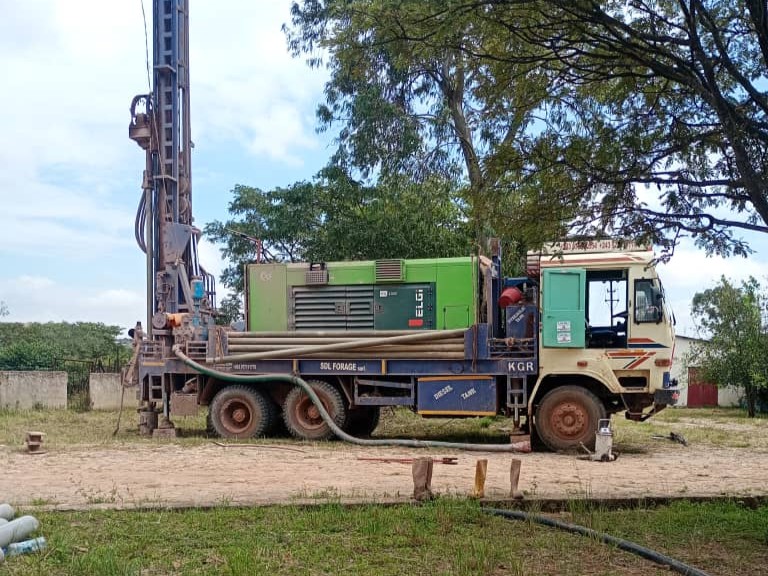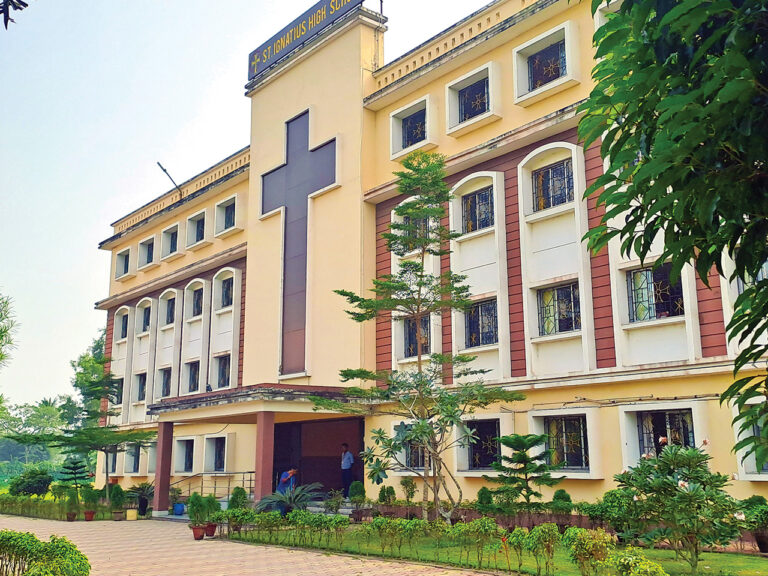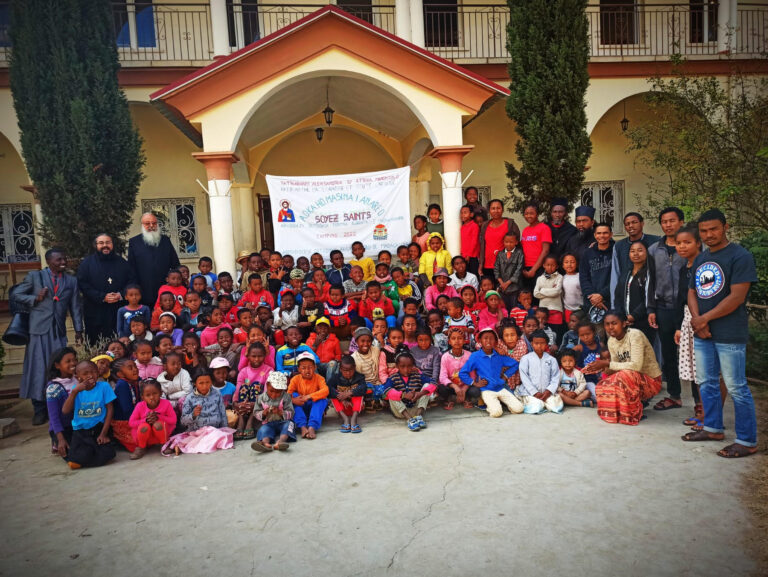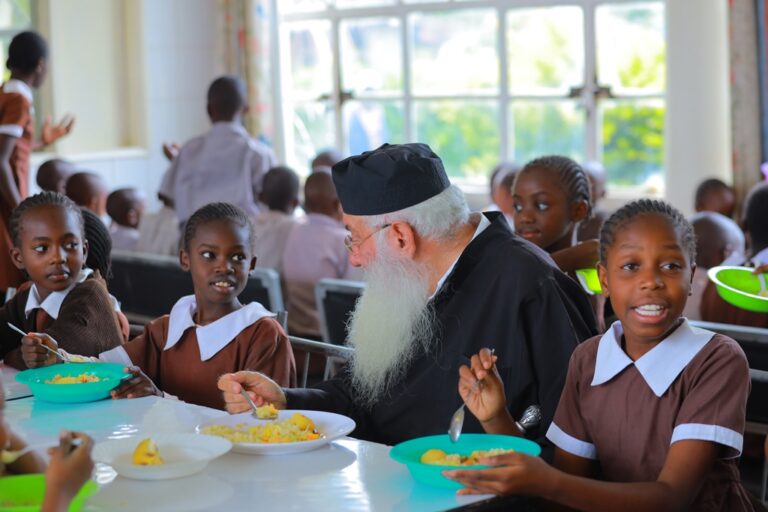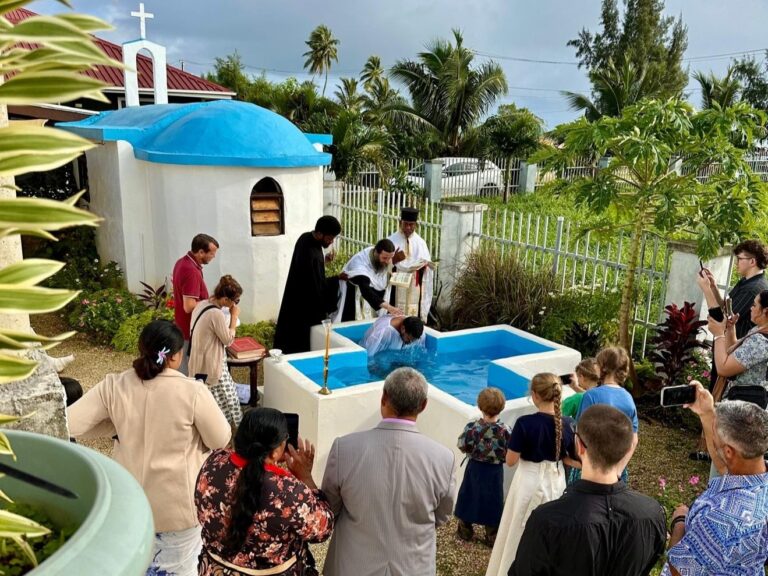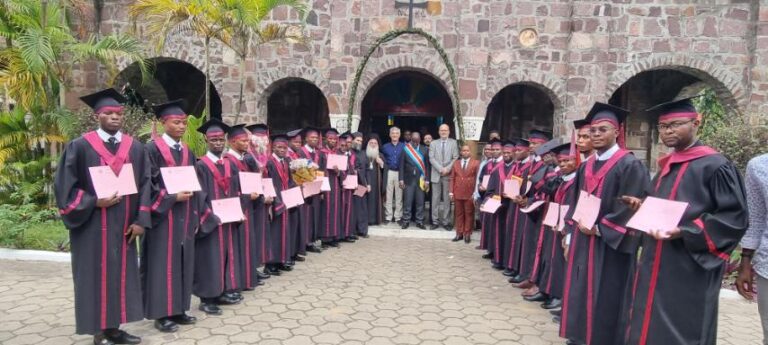A New Sun is rising in Bunia
Within the boundaries of the newly established Diocese of Kisangani, in what is otherwise known as Upper Zaire (Congo) or Stanleyville District, on the Eastern border of the Congo with Uganda, in a district that traditionally also bears the name of the “Great East” of the Congo, lies one of the three largest cities in our region, that of Bunia, Ituri.There, in Lake Albert, where every day a different sun rises behind the mountains of Uganda, sometimes hiding within it the shadow of the civil wars that plague the northernmost regions of Aru and Mahagi, of rebel raids, violent displacements and internal migrations and sometimes, the perpetual family dramas, the burning of villages, inward migrations of children without parents or parents without children, those poor souls that are mostly gathered or, should I say “jam-packed”, in more than 60 refugee camps in the region. Places where children have the misfortune to be amidst a long-standing claim of geopolitical interests, with them being the sacrificial lambs. It is these very same children-figures of Bunia- who you see roaming the harsh streets of begging or even of illegal trade of all kinds for a plate of food.
In this city of Bunia, the region capital, imposes its presence a beautiful Hellenic Church of St. Nicholas built by purely Greek hands to give its own timeless testimony in a space that once housed around 400 Greek families, that is, approximately 2,000 expatriates; Greeks, mostly engaged in fishing in the great Lake Albert, which does not have many things to envy our seas. I think that it is precisely for this reason Bunia was the most beloved place of professional and not only activity of our expatriates in the Eastern Congo.
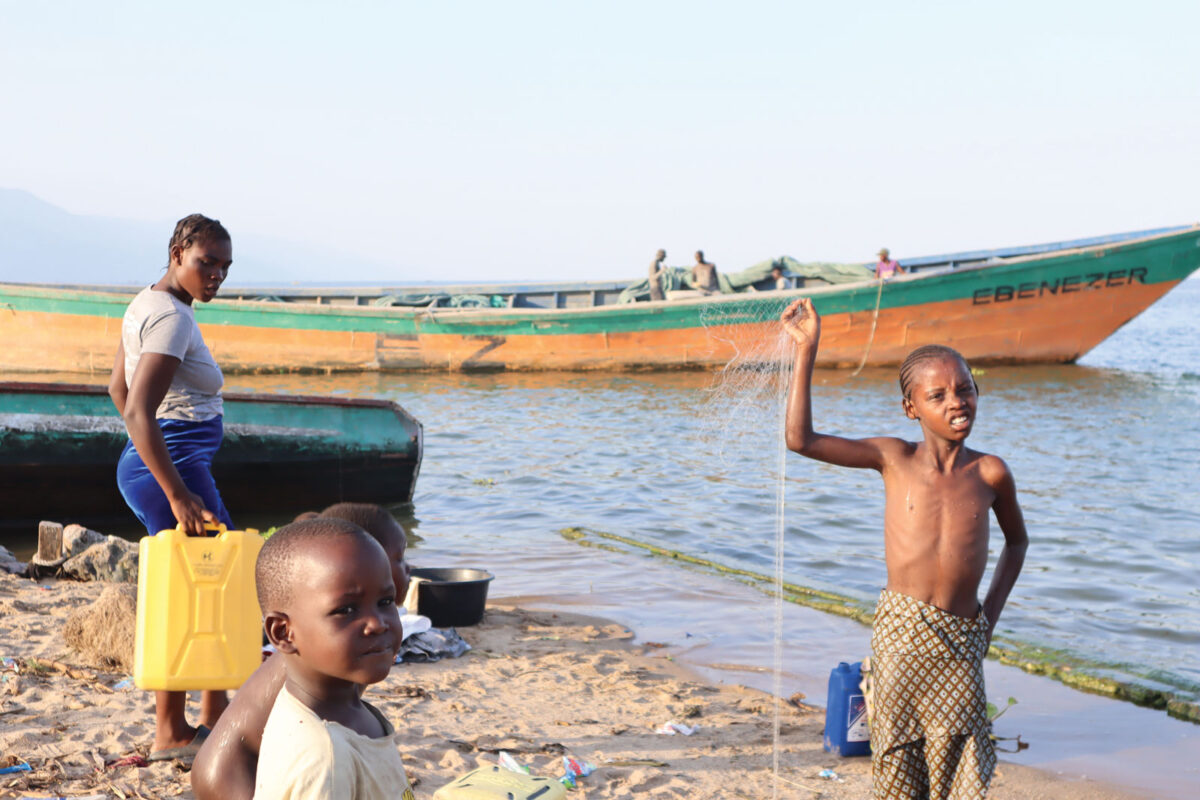
There in this Church, I felt my first great thrill in the area when I saw written on a slab of stone to the left of the Church entrance the name of the founder and main protagonist in the construction of the Holy Church: “THE FOUNDATION STONE IS LAID…BY HIS HAND VENERABLE ELDER HIEROMONK POLYKARPOS…IN BUNIA ON SEPTEMBER 1st, 1946”. The grave of the late father is located in front of the Church Sanctuary, together with graves of some other expatriates.
The emotion is not only due to this namesakeness, but rather to a more inner feeling that was created in me as soon as I saw an old photo of Fr. Polykarpos inside the Church Sanctuary. It seemed like a call from the past, like a voice that calls you to revive memories, of which you become a carrier without necessarily seeking it. Like a suffocating reality, obviously unappreciated by the passage of time and the unfortunate events that led the Greeks to their unjust displacement and eventual repatriation.
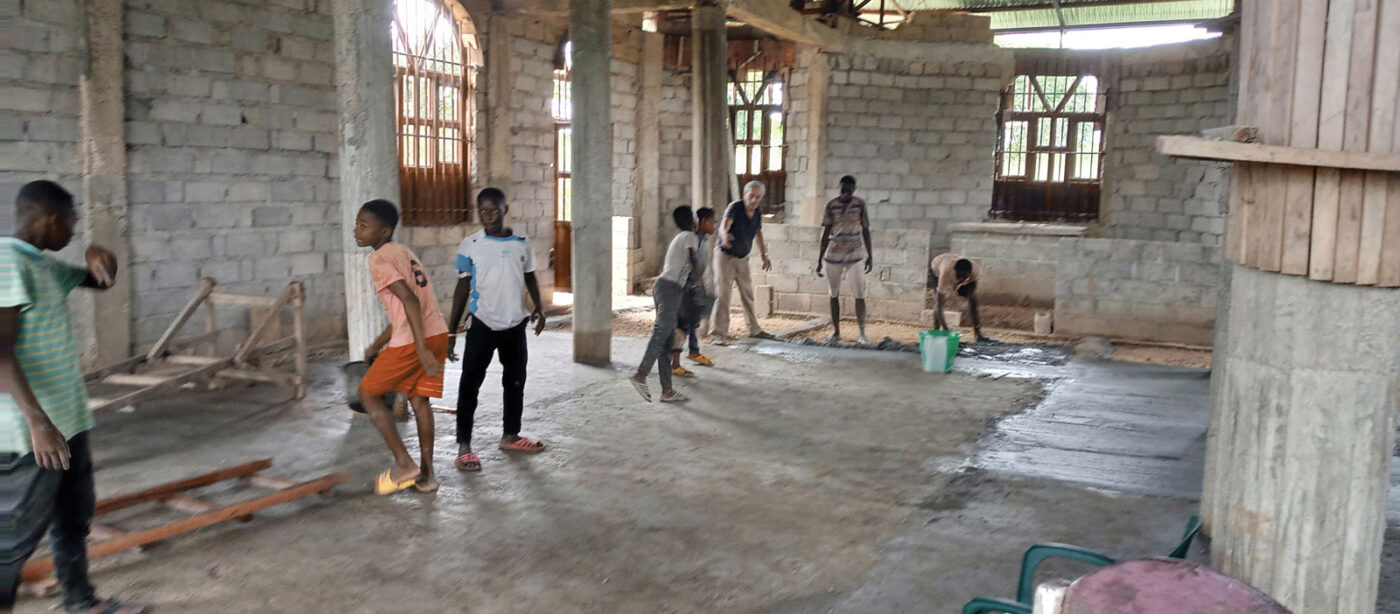
Τherefore, in the name of the late founder of our St. Nicholas Church in Bunia, I “heard” the voices of all those Greeks who passed through this place, shouting from the past and now calling their humble heir who, under the shelter of His Beatitude our Patriarch, comes to continue and pay for what our ancestors perhaps did not have the time to give in this world: the Spirit of Faith, of our Church, of the Orthodox Church. The call is clear: “the time has come to leave a lasting legacy: the wealth of our Faith along with the selfless spirit of love and sacrifice to our fellowman, and thus complete in the most proper way the reason for the presence of the Greek Spirit in this great place, where Hellenism once flourished but not Orthodoxy, despite being an integral part of its existence historically as well as ideologically. Therefore, it was a timeless call, primarily along with the pious Patriarchal mandate and blessing, which led the steps of the writer to Bunia as well. Here, where the memories of the once wonderful blending of the Greek and the Congolese spirit are still alive.
There at Lake Albert, I sat for days with my dear friend George Horiatelis and marveled for endless hours at the place that for decades hosted him and many other Greeks in the area at the time. I spoke with the local natives, who still appreciate the work of the Greeks and live near the few surviving descendants. We have already spent days of joy together and have become the recipients of perhaps the first historical donation of the Horiatelis family to the Orthodox Church, a plot of land near the lake, which is, among other things, the large commercial center of the area, due to the proximity of the place to Uganda. We held our first informal celebrations in the presence of the local king, who received us many times with joy and blessed the work we are just starting. We also witnessed the suffering of people since we are between two refugee camps, where families – victims of the civil wars that took part in the area – are housed.
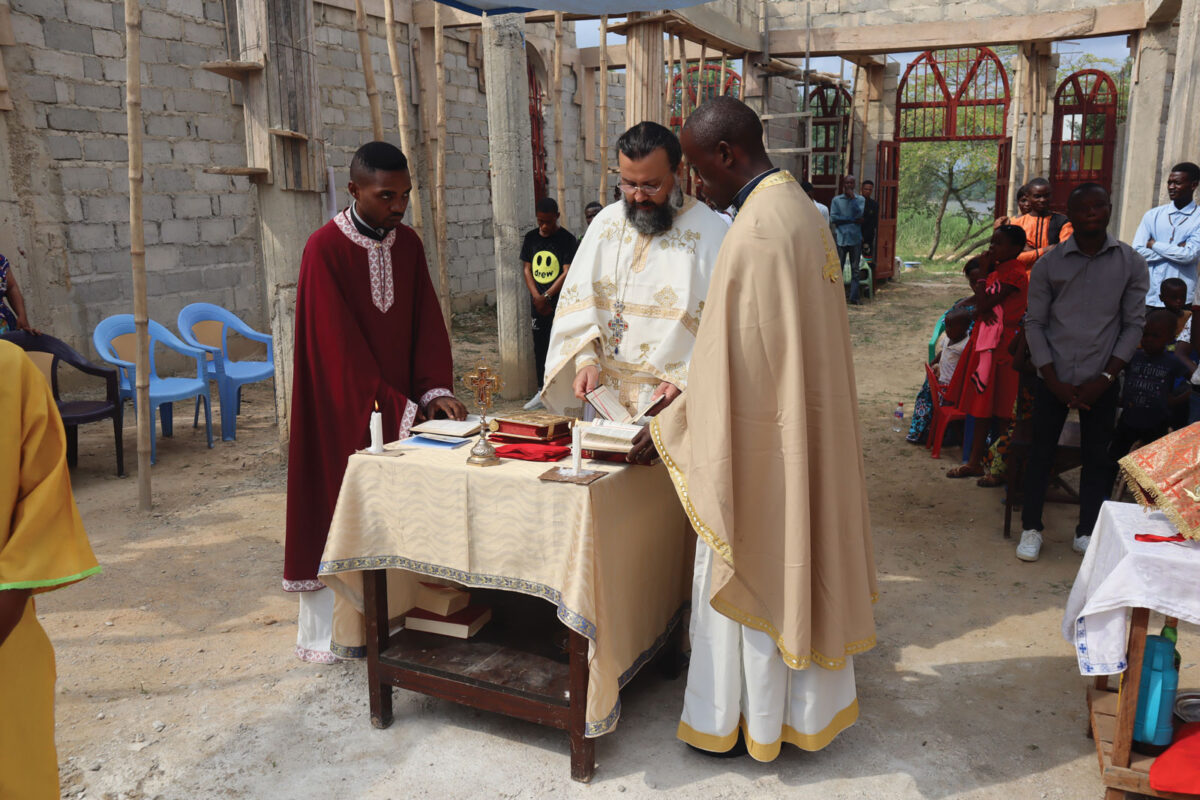
Now our beloved brother George is in the land of the living, resting eternally in Bunia together with the rest of his expatriate brothers.
Now, once more, my gaze is lost far away, here, in the waters of our lake; in a world that smells as sweet as Greece, but also brings to life fond memories of the recent past. On the opposite bank lies Uganda. I can see our fishermen’s boats and I remember our own fishermen in the Mozambique Channel, where I lived for twelve years. The children approach me and call me “the white man for our country”. And the voices of our children come to life in me there in the martyred southern land of Madagascar; in the streets of Kisangani by the Congo River; in the streets of Bunia and in our refugee shelters.
I cannot help thinking that everything in our life seems to form a wonderful sequence, a continuation and a drama that unfolds in front of our eyes to highlight the unique reality:
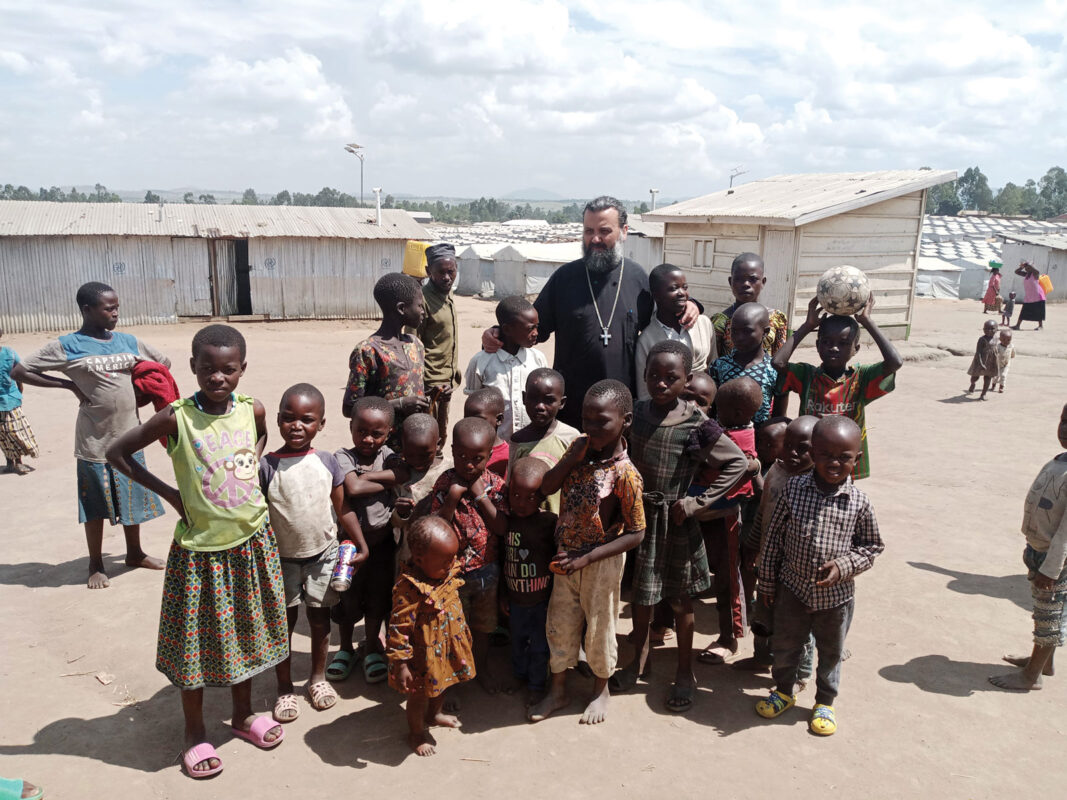
In our world we live a timeless truth. We walk together dead and alive through time, all of us completing the book of history, which, after all, is the only thing that remains eternal in our perishable world. Everything around us acquires meaning and turns into living memories when it is dispersed in space and time, analyzed through the prism of real selfless love; that kind of love that does not hesitate to be confronted even with death when circumstances demand it.
We may suffer and endure sorrows and dangers in this field called Mission; nevertheless, I am certain that no one regrets the moments of true brotherly love that for the sake of Christ they gave or were given, even if the ingratitude of this world continually and repeatedly hurts us.
A new “sun” is rising!
Today in our own “Lake Albert”, tomorrow perhaps somewhere else, a new sunrise will be our daily expectation. This will be going on until we pass to the “opposite shore’, until our spirits are united in eternal joy, which we humbly await.
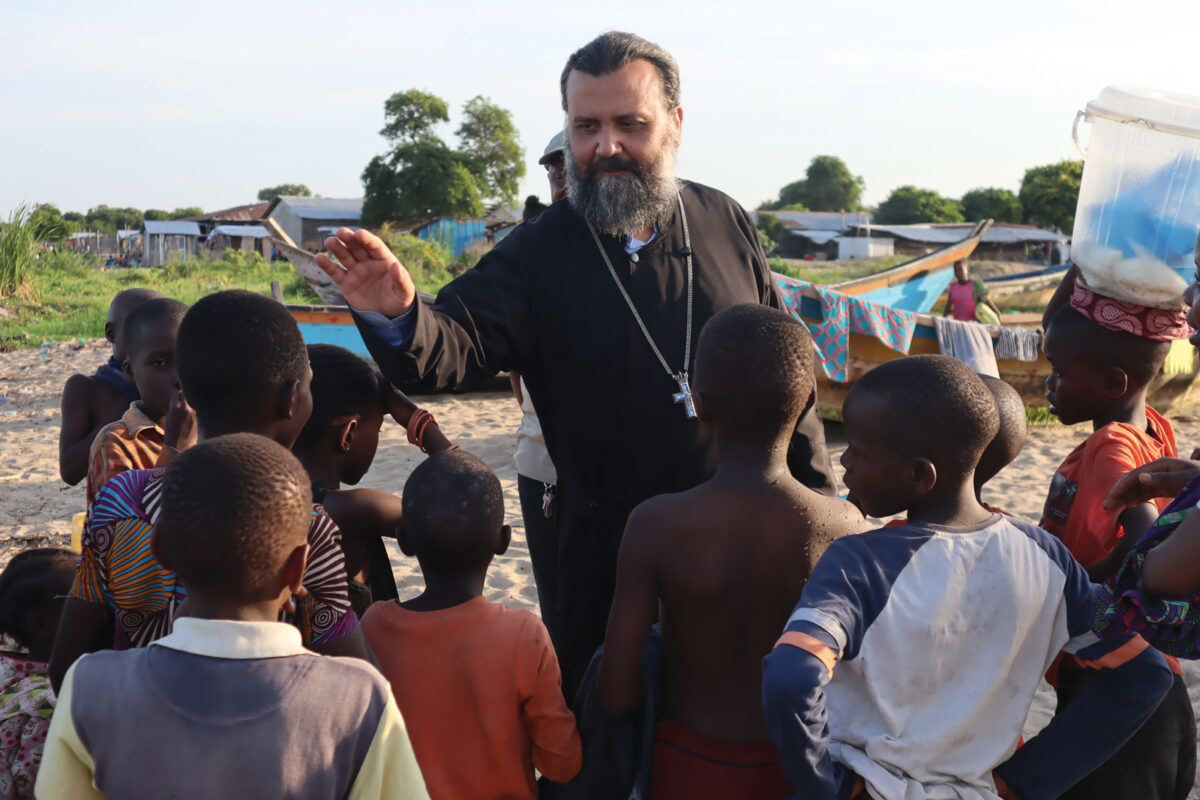
But until then, let us live every celebration, every joy, every tear that pure love and self-sacrifice for our fellow man gives us. And this is neither exaggeration, nor lyricism, nor utopia on the part of the writer. It is the truth that he has learned for 14 years now living in Africa with your prayers as a minimal minister, a humble laborer of God.
Let us enjoy this celebration all together. Living or dead, we have a share in the “new sun” that rises every single day for us.
Fr. Polykarpos Diamantopoulos
Patriarchal Vicar of Kisangani

